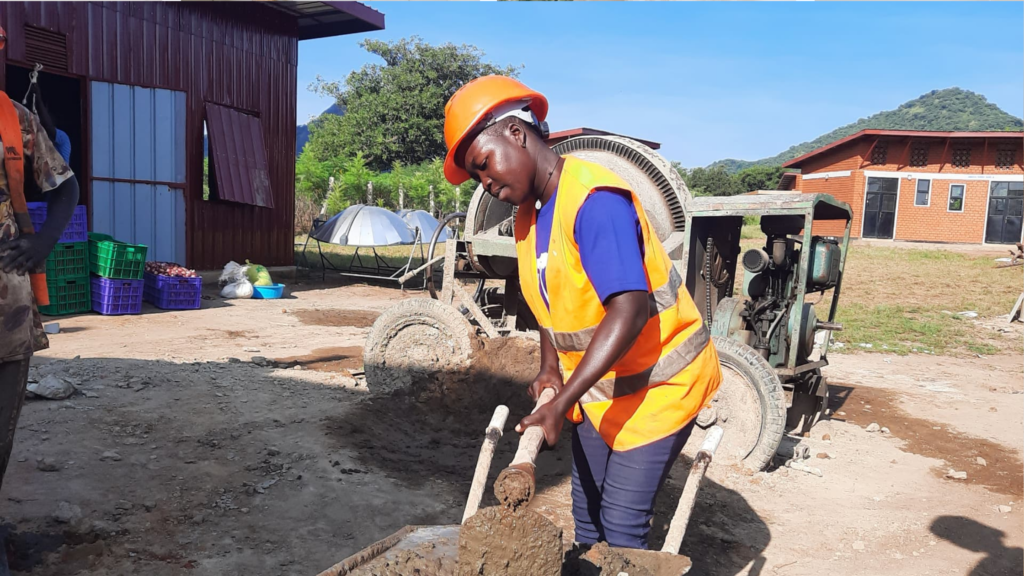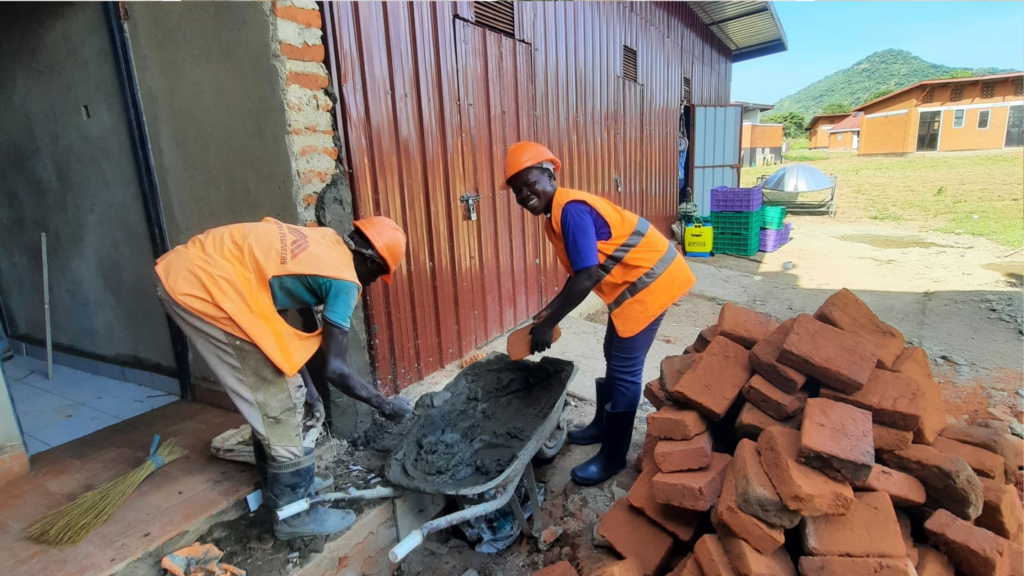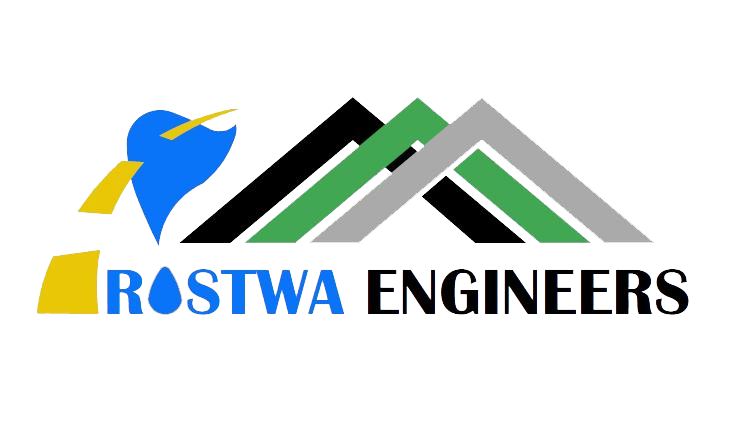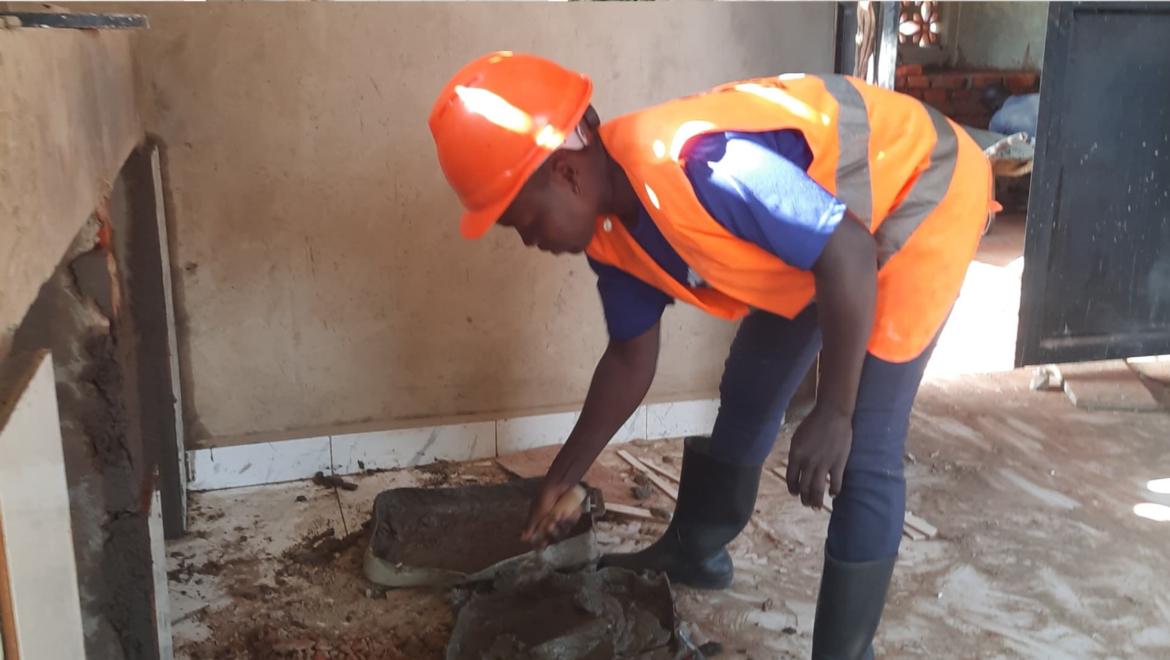What a Man Can Do, a Woman Can Do
Akide Grace the female builder walks towards me so calmly, with an anxious face that had no idea what to expect from the interview. As she drew closer, Grace is dark skinned with a smooth and clear skin complexation, a beautiful wide smile and medium sized 25 year old lady, born from a family of 3 children, Grace is the only girl .She is a resident of Kilokoitio village, Nyekidi parish, Laperebong Sub County, Agago district. Grace is a student at Adilang vocational training Institute (AVTI) pursuing a national certificate in building and construction year one. Grace and her course mates have practical part of their studies from Rostwa Engineers company sites in Adilang where several AVTI school blocks are being constructed.


On Fridays which is the only day with full time practical lessons, she normally wakes up at 5:30 am, freshens up, leaves for morning preps that runs from 6:00am-8:00.am.The practical lessons start off at 8:00am till 5:00pm with only 30 minutes breaks at 10:30am then an hours break from 1:00pm.She says working with men is not bad, since they are willing to share knowledge that she might not have understood in class hence polishing her skills. During work most of students and site workers share a lot of stories both educative and comical which makes work push on easily.
When asked about her how she finds working with men being that she is the only female, She smiled and said, ‘‘whenever I go to site, workers get so excited to see me, I don’t know why’’. Her School Administrator Mr. Okello Tonny says, ‘’Grace is one of the best performers in her class, she is very active in and outside class and holds the position of UNSA(Uganda National Students Association) president at the institute’’
Her future plan is to be an independent lady so that she can encourage other ladies who aren’t independent that it’s possible. She wants to get done with the certificate, upgrade to diploma then degree. She hopes to be an instructor of Building and construction or Administrator of an engineering company. Grace hopes to be married one day after all the studies are done and she chose being an instructor or administration because it doesn’t need much movement hence stable marital home.
Her advice to young girls is, ‘As long as you are alive, as a girl you need to try to get something to keep you independent, what a man can do a woman can do’. Her slogan for life is ‘start from nowhere but hope that you will reach somewhere’













